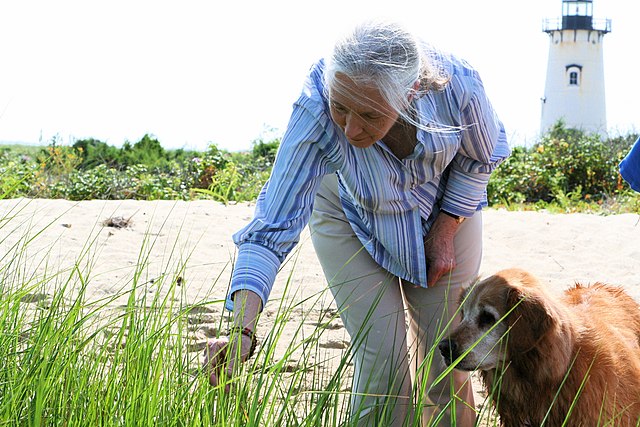This past week I read The Book of Hope: A Survival Guide for Trying Times by Dr. Jane Goodall and Douglas Abrams with Gail Hudson. This book sought to instill hope and perseverance while shedding light on what hope means to Dr. Goodall in a world filled with violence, economic disarray, and a worsening climate crisis.
The book is divided into four main sections based on Goodall’s four reasons for hope:
- The Amazing Human Intellect
- The Resilience of Nature
- The Power of Young People
- The Indomitable Human Spirit
Hope, to Dr. Goodall, is a complex yet primitive phenomenon. With hope, we can persevere in the face of difficulty. However, in order to achieve this, we must put forth the effort necessary to make it happen. Goodall’s persistent belief in hope for positive change in our world, despite seeing all kinds of things throughout her eight decades of existence, is not only an inspiration but a call to action. Throughout the book, she highlights real positive changes happening all around the world, accompanied by an array of real stories that showcase the beauty and whimsy of our natural world.
As a member of Gen-Z and a communications fellow in the conservation sector, I often find myself stressing about the state of our environment and what our world will look like within the next decade. I tend to get lost in the overwhelming and daunting feeling that this climate crisis brings about. Thanks to my time with OneNature, I’ve gotten to broaden my horizons when it comes to books and immerse myself in inspiring stories, much like this one.
Throughout my time reading, I found myself drawn to Jane Goodall’s thought process and the manner in which she conducts herself. She is incredibly eloquent, reflective, and raw. I found her view on the negative or challenging issues that are so prevalent in our world today to be incredibly motivating and (thanks to doom-scrolling through countless articles dedicated to the violence and hate our world seems to be filled with) a breath of fresh air.
“I believe we still have a window of time during which we can start healing the harm we have inflicted on the planet—but that window is closing. If we care about the future of our children and theirs, if we care about the health of the natural world, we must get together and take action. Now—before it is too late.”
Dr. Jane Goodall, The Book of Hope
If you have not yet had the opportunity to read The Book of Hope, I sincerely recommend you consider it. After finishing the book, I rushed to get my hands on copies of some of her other titles like In the Shadow of Man and Through a Window.
A little about Jane Goodall:
With a background in anthropology and primatology, Dr. Jane Goodall is a pioneer and visionary in the field of wildlife conservation. Renowned as the foremost expert on chimpanzees, Goodall has led an impressive life full of ingenuity, activism, and curiosity.
From the 1960s to the mid-1980s, Goodall dedicated her life to observing chimpanzee behavior, hoping to challenge traditional and out-of-date scientific theories. The insights she made during her time in the field changed the way the conservation sphere viewed our standing in the natural world, how women in science are viewed, and the importance of advancement in recognized and traditional views.
The Jane Goodall Institute was established in 1977 to carry on Goodall’s study on chimpanzees while promoting initiatives dedicated to chimpanzee preservation and conservation. Principal and essential advances in our understanding of chimpanzees can be attributed to Goodall’s field research and discoveries.
Image: William Waterway | Wikimedia Commons
